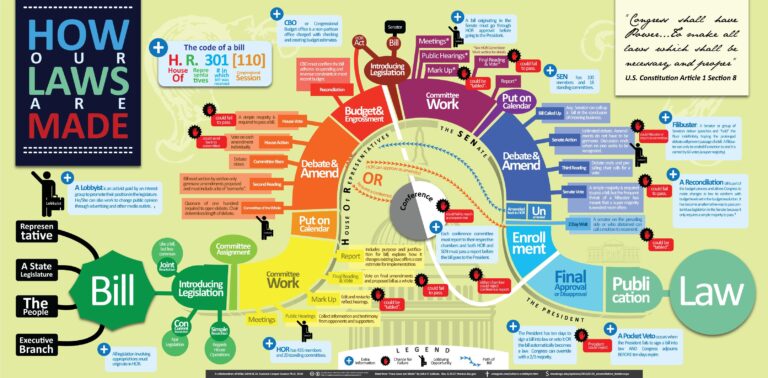Strengthening U.S. Biotech Security: New Legislation Targets Chinese Companies BGI and WuXi AppTec
The U.S. House committee has advanced a pivotal bill designed to impose stricter regulations on Chinese biotechnology giants BGI and WuXi AppTec. This legislative initiative arises amid escalating concerns about data privacy vulnerabilities and intellectual property risks associated with these firms, which play influential roles in global genetic research and pharmaceutical innovation. The bill’s core measures include:
- Prohibiting U.S. government contracts with BGI and WuXi AppTec
- Implementing rigorous vetting procedures for collaborations involving foreign biotech entities
- Requiring comprehensive reporting on genetic data security and privacy risks
This legislation reflects a strategic recalibration as U.S. policymakers intensify oversight of foreign biotech companies with access to sensitive biomedical information, highlighting the broader geopolitical friction between the U.S. and China in technology and healthcare domains.
| Focus Area | Expected Outcome |
|---|---|
| National Security | Reducing risks of espionage and unauthorized data acquisition |
| Innovation Ecosystem | Potential challenges to international research collaborations |
| Industry Dynamics | Encouragement of domestic biotech partnerships and investments |
National Security and Data Protection Concerns Driving Legislative Action
In response to mounting apprehensions about national security, the U.S. House committee has proposed legislation aimed at curtailing the influence of prominent Chinese biotech firms such as BGI and WuXi AppTec. These companies’ access to critical U.S. research infrastructure and sensitive genomic databases has raised alarms about potential intellectual property theft and state-backed espionage activities. Lawmakers emphasize that safeguarding cutting-edge biotechnological advancements is essential not only for public health but also for maintaining America’s strategic technological edge.
The bill introduces several stringent provisions, including:
- Comprehensive screening processes for foreign biotech collaborations with U.S. institutions.
- Mandatory transparency regarding foreign partnerships and funding sources to federal regulators.
- Enforcement mechanisms such as sanctions and restrictions on federal funding for non-compliant entities.
| Provision | Details | Anticipated Effect |
|---|---|---|
| Screening Processes | Thorough background checks on foreign biotech partnerships | Prevent unauthorized sharing of sensitive data |
| Transparency Requirements | Disclosure of all foreign collaborations and financial backing | Enhance government monitoring and risk assessment |
| Sanctions | Penalties and funding restrictions for violations | Deter risky foreign investments and partnerships |
Impact on U.S.-China Biotech Partnerships and Industry Stakeholders
The proposed legislative measures targeting BGI and WuXi AppTec represent a critical juncture for U.S.-China collaborations in biotechnology, generating uncertainty among industry participants. As the bill progresses through the House committee, American companies affiliated with these Chinese firms may encounter operational interruptions, including halted joint ventures and intensified regulatory oversight. This development underscores growing concerns about protecting intellectual property, securing sensitive data, and navigating the complex geopolitical landscape shaping bilateral business relations.
Beyond immediate compliance hurdles, the legislation is poised to influence strategic decision-making within the biotech sector, particularly in genomics, pharmaceutical development, and medical research. Organizations must now carefully evaluate the risks associated with partnerships flagged by lawmakers against the advantages of international knowledge exchange. Key considerations include:
- Stricter Due Diligence: Conducting enhanced background investigations and legal reviews before forming alliances.
- Diversification of Supply Chains: Seeking alternative collaborators outside of China to reduce exposure.
- Advocacy Efforts: Industry groups may lobby for balanced regulations that protect innovation while addressing security concerns.
| Stakeholder | Main Concern | Likely Response |
|---|---|---|
| U.S. Biotech Companies | Disruptions to ongoing projects | Reassess partnerships and strengthen compliance measures |
| Investors | Market instability and risk exposure | Adjust investment portfolios to mitigate China-related risks |
| Policymakers | National security vulnerabilities | Implement tighter oversight and transparency mandates |
| Chinese Biotech Firms | Restricted access to U.S. markets | Explore partnerships in other global regions |
Strategic Policy Recommendations for Balancing Innovation with Security
To effectively balance the dual imperatives of fostering innovation and protecting national security, policymakers should pursue a nuanced strategy. This includes enacting targeted restrictions focused on high-risk foreign entities like BGI and WuXi AppTec, while avoiding broad measures that could stifle the entire biotechnology sector. Employing transparent risk assessment frameworks will help distinguish between beneficial international collaborations and those posing security threats. Moreover, encouraging public-private partnerships can facilitate intelligence sharing and best practices to secure sensitive research without impeding scientific progress.
Transparency and accountability must underpin any regulatory approach. Governments should mandate disclosure of foreign affiliations and funding sources to enhance oversight, while minimizing undue compliance burdens. The following table outlines a balanced policy toolkit adaptable across industries:
| Policy Component | Objective | Expected Benefit |
|---|---|---|
| Selective Export Controls | Restrict technology transfer to high-risk foreign actors | Safeguards intellectual property while supporting general R&D |
| Mandatory Partnership Disclosure | Enhance transparency of foreign collaborations | Improves regulatory oversight and risk management |
| Incentives for Domestic Innovation | Promote homegrown research and development initiatives | Strengthens economic competitiveness and innovation capacity |
| Robust Cybersecurity Protocols | Protect critical data infrastructure from cyber threats | Reduces risk of espionage and data breaches |
Conclusion: Evolving U.S. Biotech Regulations Amid Geopolitical Tensions
As the U.S. House committee advances legislation targeting Chinese biotech leaders BGI and WuXi AppTec, the move underscores intensifying concerns over foreign influence and data security within the biotechnology sector. Garnering bipartisan support, the bill aims to protect American scientific and technological interests amid heightened scrutiny of Chinese firms operating in critical research areas. This development represents a key milestone in Washington’s broader strategy to enhance regulatory oversight and fortify national security, reflecting the complex and evolving dynamics of U.S.-China relations. Further deliberations and negotiations are anticipated as the bill progresses through Congress.




